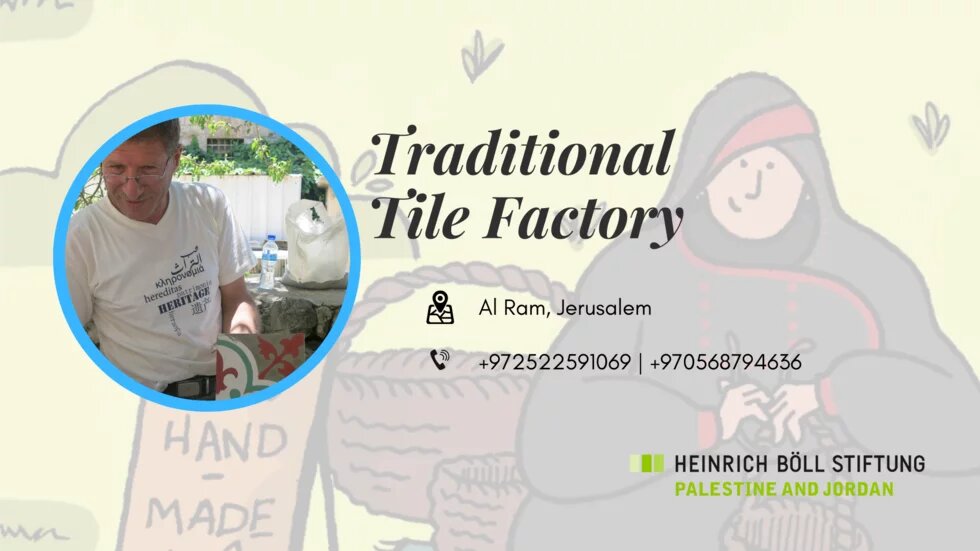
We had assumed that the art of making traditional tiles, like the construction of traditional style houses, had vanished, until we came across Ali Wazwaz, the owner of a traditional tile factory still operating in Al Ram.
Descending from a family working in tile artisanship since 1953, Ali followed in the footsteps of his father ‘Abd Al-Kareem Wazwaz’, who worked in a tile factory in Bab Al Jdeed “New Gate” in the old city of Jerusalem before opening up his own factory in Shu’fat in the 1960’s and moving it some 20 years later to Al Ram.
Ali explains how the industry was on the verge of disappearing after the introduction of a cheaper type of tile called ‘Al Hasma’, which is used as a base tile to be covered by parquet or cape carpet (mokette). This change left them no option but to shift to making this type of tile to accommodate market demand. This continued until 1993, when Ali met the renowned Suad Amiry, the founder of Riwaq, the Centre for Architectural Conservation. Riwaq was carrying out a documentation project for traditional tiles at the time. “She was the one who encouraged me to make the traditional tiles once again”, Ali recalls.
Excited to bring back to life the traditional beautiful tiles, Ali took out the old moulds (clichés) his father had obtained from Al-Tams Tile factory in the old city of Jerusalem and started making these magnificent colourful tiles, manually, one at a time, using his father’s old machine.
Layers of dye mixtures, fine limestone, white cement and regular cement mixture are poured into the clichés and pressed manually in this machine to produce the beautiful tiles. Ali also makes new clichés based on traditional designs in hopes of reintroducing the tiles in Palestinian market by catering to different tastes and combining modernity with tradition.
Currently, the primary customers of Ali’s traditional tiles are agencies and organizations working in building-conservation such as Riwaq, which purchases nearly 70% of the production. Ali estimates that 10% goes to Palestinian individuals who appreciate the incorporation of authentic traditional art in their modern homes and 20% from Israelis customers.
In an article about Ali, he was quoted saying “My dream is to have a large tile factory that is able to produce high quality tiles and employ tens of crafts people. I wish all people knew about the beauty of these tiles and loved them as much as I do. These tiles are not mere tiles; they are eyes, and these colours are not colours, they are paintings, they bring rooms to life and light up any space. It is time that we also realize the value of these tiles and reconsider including them when decorating or renewing our homes.”
______________________________
Product selling points: On location.
Other services: Customised orders.